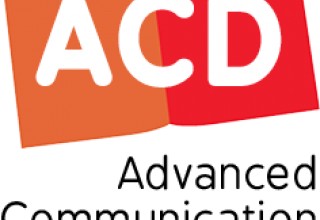Cross-Functional Teams: "We See Crossed Wires Short-Circuiting Innovation All the Time"

Oakland, CA, July 21, 2015 (Newswire.com) - Executives and HR departments can feel confident that investing in employees’ communication skills pays off in stronger teams. In June, Forbes reported that IDEO CEO Tim Brown distinguishes between two kinds of employees:
- I-shaped employees are “experts in their area who have an extremely limited ability to collaborate across disciplines”
- While T-shaped employees “have deep expertise in one area and a working understanding across disciplines, which gives them insight into the bigger picture”
Natasha Terk is the managing director of consulting firm Advanced Communication Designs. She says, “A lot of managers in our client organizations need help speaking other people’s language. We see a lot of I-shaped geniuses whose expertise stays bottled up inside them” in the firm’s Fortune 500 and other multinational clients.
Gifted employees don't have to write page-long paragraphs, or confuse their colleagues in meetings, or dump intricate info onto their presentation slides. Better communication skills are the key to helping a smart manager broaden out and contribute toward everybody's success on a cross-functional team.
Natasha Terk, Managing Director, Advanced Communication Designs
“Gifted employees don’t have to write page-long paragraphs, or confuse their colleagues in meetings, or dump intricate info onto their presentation slides,” Terk says. “Better communication skills are the key to helping a smart manager broaden out and contribute toward everybody’s success on a cross-functional team.”
Communication skills are the key to T-shaped employees’ insights into the bigger, cross-functional picture beyond their own areas of expertise. Communication-skills consultants should use a fresh, outsider’s perspective to help individual client employees explain their expertise in language everyone can understand.
“We see crossed wires short-circuiting innovation all the time for our big-organization clients,” Terk says. “But waking managers up to new communication methods makes internal teamwork much stronger and helps everyone identify fresh strategies.”
Testing and fostering your employees’ communication skills has several benefits toward organizational development:
- Projects an image of the organization as an innovative leader in the field
- Pools everyone’s wisdom to grow the company
- Reveals new ways to improve the bottom line
Senior managers aren’t the only employees whose communication skills can lead to new efficiencies and more effective work. Rob Matteucci is a former CEO of Evenflo and executive from Procter & Gamble. Forbes reports that he asks junior employees to write up analyses of their work, and reading these analyses has helped him identify techniques to benefit his business.
“Reading an employee’s analysis is a window straight into how innovative their thinking is and how sharp their problem solving skills are,” Terk says, “and it also tells you what they’re like to work with. Is their writing clear, concise, and focused on new solutions? Then you’ve just identified some leadership potential to invest in.
“Or are you looking at a manager whose language is confusing and long winded?” Terk asks. “That’s always a setback.
“But investing in that manager’s communication skills will help your expert become a better project manager who thinks more clearly, as well as a better leader who’ll inspire your people to succeed.”


